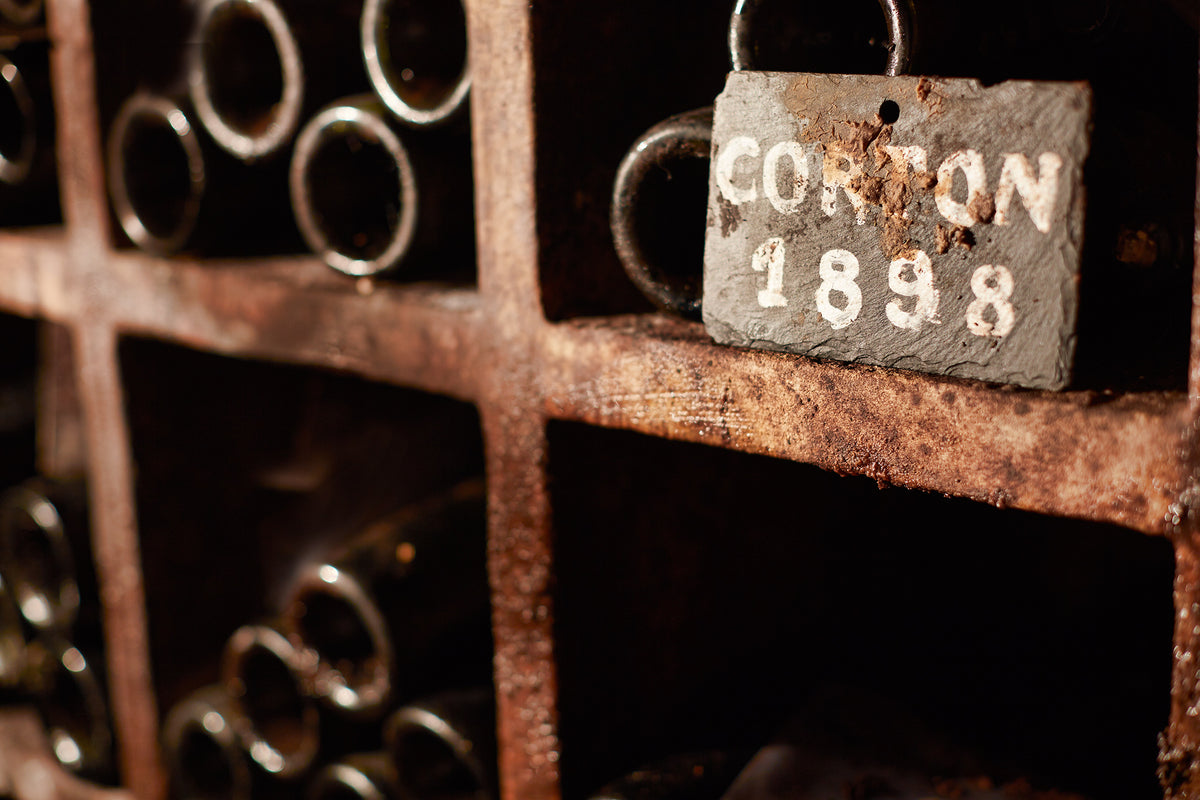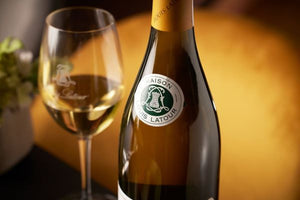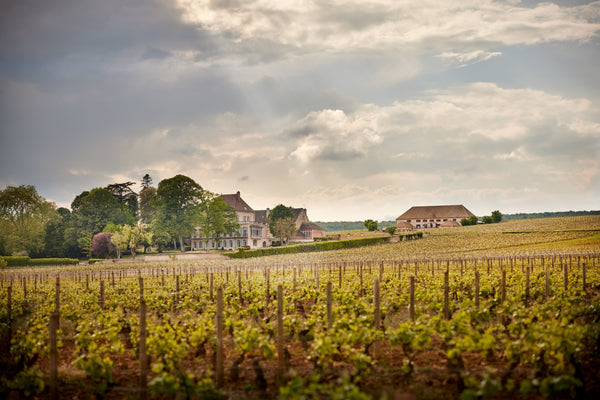FAQS
Wine Questions
How should I store my wine and for how long?
The perfect wine cellar is buried, with a constant temperature of 12°C or 54°F, a naturally high humidity of 70% and has a packed earth floor covered with gravel. This ideal cellar is unfortunately very rare. However, certain factors must absolutely be taken into account in order to keep one's wine in good condition:
Temperature plays a key role, as it determines the rate of evolution of bottled wine. The higher it is, the more quickly the wine evolves. But more than the temperature itself, it is the temperature variation that has the most impact. Any rapid temperature variation is bad for wine. A slower, but moderate variation - avoid exceeding 19°C or 67°F - will not be harmful. A cellar at 12°C/ 54°F constant is really only important if you want to keep your treasures for years, as the temperature permits a very slow maturation.
Humidity is another key factor for optimal conservation. A cellar that is too dry is actually detrimental to keeping bottles and causes permanent damage. If the humidity is too low, i.e. below 70%, the corks will dry out and wine will evaporate causing lower levels in bottles and premature oxidation. High humidity is never harmful to the wine, it will only affect "Taste of light" or unacceptable aromatic deviance, can be caused with too much light exposure and this is especially true for white wines. A cellar must remain as obscure as possible and equipped with low-intensity bulbs.
Finally, your wine should not be subjected to shocks or vibration as they wake bacteria that affect the quality of wine, and ultrasound can dissolve colorant's or tannins.
When are wines ready to drink? This is a question frequently asked. Besides its initial potential, the shelf life of wine depends essentially on storage conditions. In a perfect cellar, as described above, the wines age much more slowly than in a room at 15°C or 59°F and a bit dry. It is therefore important to assess the quality of his cellar and regularly monitor the condition of the bottles that are cellared. There is no age limit and it is not uncommon that some old bottles of over a hundred years still show incredible youth. However, it is also a matter of personal taste, though some like the wines that develop tertiary aromas after long aging, others prefer wines younger because they have fresher aromas and flavors that are fruit driven.

What is the temperature to serve my wine?
Serving temperature is a crucial element when tasting wine. A wine that is a degree too warm or too cold can seriously impair the tasting experience, particularly when tasting high quality wines. There are a few basic rules that should be observed if this exercise is to be a success: aperitif wines should be served slightly cooler, and the use of an ice bucket is perfectly acceptable even for red wines, although not to excess. The serving temperature should never exceed 19°C (67°F), as a wine will never reveal its true qualities when it is too warm.
It is worth remembering that a wine will slowly gain temperature during the tasting itself, and therefore the bottle should be cooled to around two degrees below the desired temperature. Care must be taken not to serve the wines too chilled, which will harden the palate, and equally not to serve them too warm, which will cause the alcohol characters to dominate.
A good rule of thumb would be to serve our white wines between 12°C (53.6°F) and 13°C (55.4°F) and our red wines between 15°C (59°F) and 16°C (61°F).
The age of the wine and the tasting environment also need to be considered. Our older vintages may be served a degree warmer, whilst a young white wine will express itself better if it is too cool rather than a touch too warm.
Opening a bottle can prove to be a more difficult exercise than it might appear. Of course, the bottle must have reached the correct temperature and, on the Maison Latour bottles with their unique shape, the capsule must be cut just under the neck ring.
Older vintages need to be handled with particular care to avoid damage to the cork. Prefer a classic sommelier's knife, which is precise and efficient. Be careful not to pierce the cork or it could be weakened at the time of extraction. Slowly draw out the cork without twisting. Decanting our wines is not recommended. However, the use of a carafe can be beneficial to some young wines as, even if the majority of wines can be served directly from the bottle, certain wines will be improved by being passed in a carafe. It is imperative to distinguish between the use of a carafe, which consists of pouring a wine rapidly into the carafe in order to oxygenise it and help it to deliver up its aromas more quickly, and decanting, which is a process designed to filter off any possible deposits. Although the use of a carafe is indispensable for certain wines, it can prove to be fatal to others. It is generally recommended for young red wines, which will allow a Cru to reveal its aromas more quickly, although it will not reach the level of gustative complexity conferred on a wine by a long cellar maturing. A wine in a carafe will become softer and rounder.
White wines can also benefit from the use of a carafe to accentuate the power and richness of their aromas. However, if left too long in the carafe, these wines risk losing their vivacity and character. Care also needs to be exercised when serving very old vintages, whose lifespan may possibly be counted in minutes after opening. Oxygenation can be violent when being poured into a carafe and this can prove fatal to these wines.
Evidently, the carafe must be perfectly clean, preferably rinsed in fresh, filtered water to avoid limescale deposits, and free of damp odors and dust.
Why aren't all your wines listed?
We have a limited selection to begin our direct-to-consumer (DtC) campaign. We want to establish ourselves and make sure our internal processes and logistics mirror the elegance and finesse that you can expect from our wines. In this exploratory stage, we will be offering only a smaller collection of our full library while we fine tune everything behind the scenes. As we become more stable and situated, we will increase our library to include more of the wines you know and love as well as many wines that you can only find in France! The selection that was chosen was not done lightly - all of the current wines are flagship varietals that are outstanding in their field and offer a true taste of Burgundy’s finest wines.
Shipping Questions
Where do you ship?
We currently are shipping to:
California, Idaho, Nevada, New Mexico, Oregon, Virginia, Washington DC
For more information, see “Why won’t you ship to my address?”
Why won't you ship to my address?
In our exploratory run of Shopify, our shipping zone is limited. We will only be shipping to a few areas that we have licensing to. As we transition and build our direct-to-consumer (DtC) business, we will expand to include all states that allow importers to sell directly to consumers. However, we will not have the licensing to ship directly to consumers in many states because a shockingly large number of states do not allow DtC sales from an importer.
We are working with a licensing company to expand our horizons. We want to reach as many states as possible! If you reside in a state that we cannot ship to, feel free to email us, and we can let you know if we have plans to get a license in your state or if there is a retailer that you can find our wine at. Please be patient in our process of expansion!
Why hasn't my wine shipped yet?
We are waiting for a climate event to pass. Heat higher than 75°F has the potential to spoil wine in a few hours. Cold temperatures lower than 50°F are equally as bad. What is even more detrimental to wine is a temperature variance, in which the temperature heats or cools very rapidly, such as a hot summer afternoon fading into a cold night. We want to make sure your wine will reach you in its best state, and sometimes that means waiting for weather to pass. Shipping distance also has an impact in our decision because that dictates how long the wine will be at the mercy of mother nature unprotected in the back of a delivery truck. We will ship your wine as soon as possible with utmost consideration to weather and travel times.
When should I order my wine?
Order your wine well in advance if you are planning a special occasion. Weather will dictate when we can ship our wine, and to protect the integrity of the wine, we will not ship during extreme temperatures. If you are considering purchasing wine and would like to have it by a certain date, you can purchase expedited shipping. Please email us with any further questions regarding when you should order wine at customerservice@louislatourinc.com
Do you accept returns?
Please reach out to contact@louislatourinc.com. We want to make sure that you are satisfied with your purchase. For items damaged during shipping, please contact the carrier (FedEx) that delivered your package.


